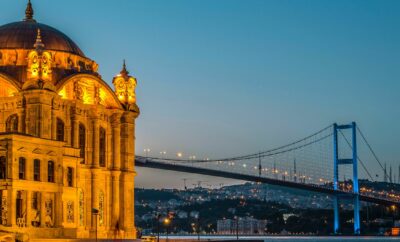Brief History of City Istanbul
The history of Istanbul is a rich and complex tapestry that spans thousands of years, with influences from various civilizations and empires. Here is an overview of the key historical periods and events that have shaped the city now known as Istanbul:
1. Ancient Byzantium (c. 660 BCE):
- The city’s history dates back to ancient times when it was known as Byzantium. It was founded as a Greek colony on the European side of the Bosphorus Strait.
2. Roman Period (c. 196 CE):
- Byzantium became part of the Roman Empire and was strategically located along the trade routes connecting Europe and Asia. It grew in importance and prosperity during this period.
3. Byzantine Empire (330-1453):
- In 330 CE, Emperor Constantine I made Byzantium the capital of the Eastern Roman Empire, renaming it Constantinople. The city became the center of Byzantine culture, politics, and Christianity. Notable landmarks, including the Hagia Sophia and the Hippodrome, were built during this era.
4. Ottoman Conquest (1453):
- The Ottoman Empire, led by Sultan Mehmed the Conqueror, captured Constantinople in 1453 after a lengthy siege. This event marked the end of the Byzantine Empire and the beginning of the Ottoman Empire’s dominance in the region.
5. Ottoman Empire (1453-1922):
- Istanbul became the capital of the Ottoman Empire and experienced significant growth and cultural flourishing. The city’s skyline was adorned with stunning mosques, such as the Blue Mosque and Süleymaniye Mosque. The Topkapi Palace served as the imperial residence.
6. Turkish Republic (1923-Present):
- Following World War I and the fall of the Ottoman Empire, Istanbul became part of the newly established Republic of Turkey in 1923. The capital was moved to Ankara, but Istanbul retained its status as Turkey’s largest and most influential city.
7. Modernization and Growth (20th Century):
- In the 20th century, Istanbul underwent rapid modernization and urbanization. The city expanded significantly, with the construction of bridges, tunnels, and modern infrastructure. Its population grew substantially, making it one of the world’s most populous cities.
8. Cultural and Economic Hub (Present):
- Today, Istanbul is a dynamic and vibrant metropolis, serving as a bridge between Europe and Asia. It’s renowned for its diverse culture, rich history, and stunning architectural landmarks. It is also a major economic and cultural center in Turkey and the region.
Istanbul’s strategic location at the crossroads of Europe and Asia, along with its historical significance, has contributed to its unique blend of cultures and civilizations. The city’s layered history is visible in its architecture, traditions, and way of life, making it a captivating destination for travelers and a city with a story that continues to evolve.
If you are looking for accommodation during your visits to Istanbul, then you are at the right place. We offer fully furnished apartments in Istanbul. Simply contact us and we will plan your stay together. Check out our apartments
Avrasya.com – Short Rental Apartments in Istanbul







